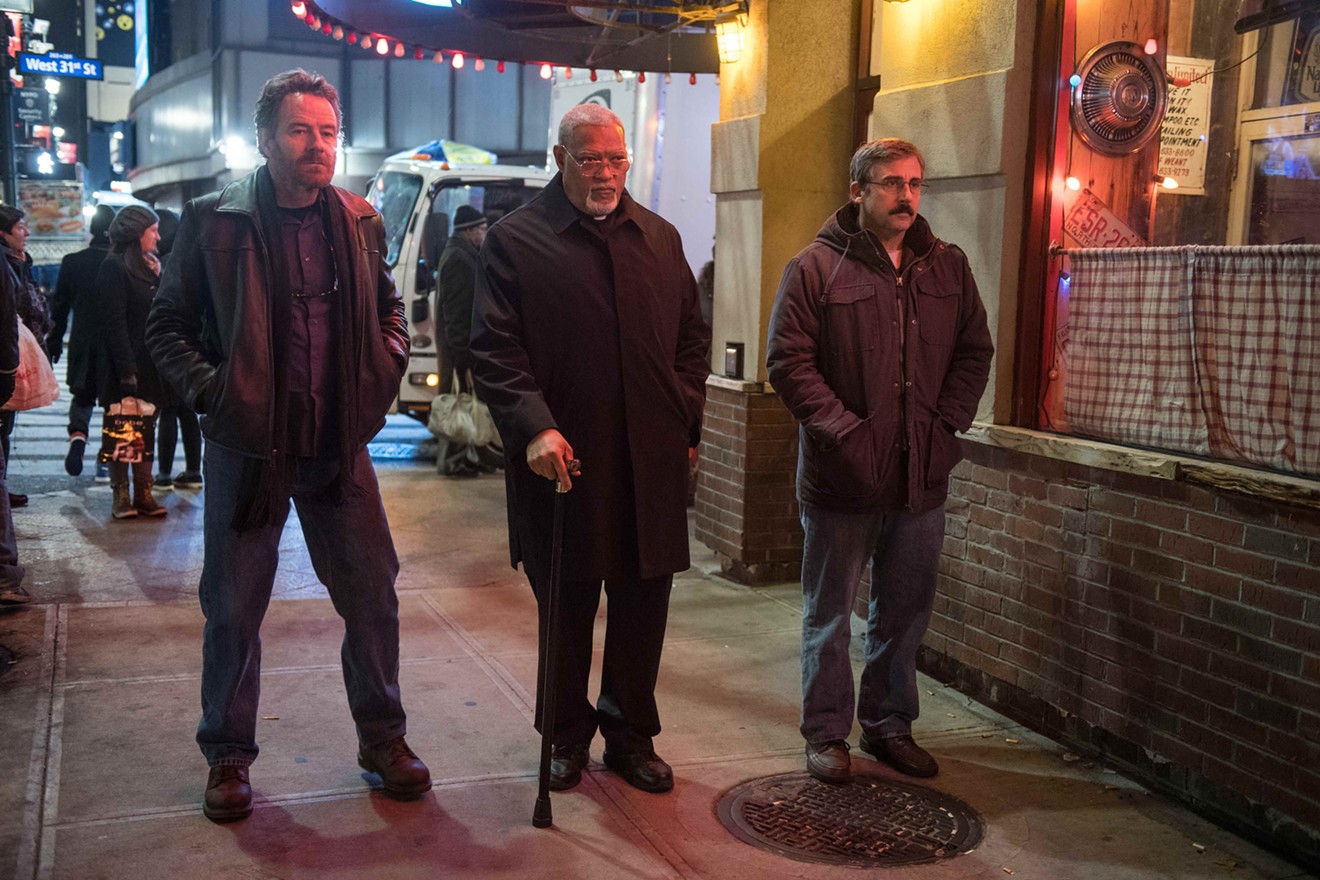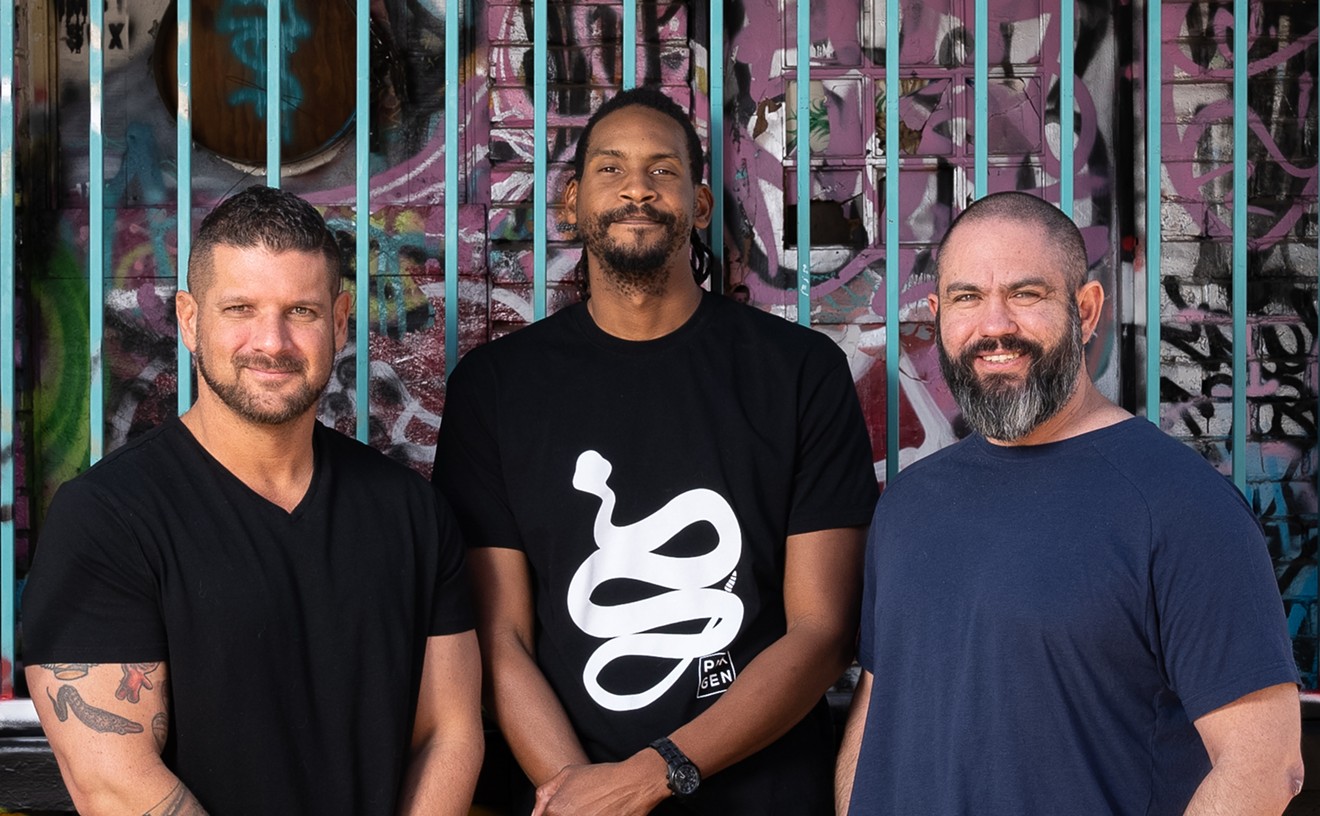Despite the many troubling trends in our media culture, the movies’ response to the Iraq War has been (gasp) surprisingly admirable. Since the mid-2000s, a steady stream of films have artfully addressed war’s aftermath and the homefront — from Stop-Loss and In the Valley of Elah, to Grace is Gone and The Messenger, and maybe even American Sniper. We may not agree with (or even like) all of these works, but they represent serious efforts to depict how the conflict bled out into the world beyond the battlefield. Richard Linklater’s Last Flag Flying, based on Darryl Ponicsan’s 2005 novel, follows three Vietnam veterans who reunite to retrieve the returning body of a young man killed in Iraq. As such, it’s somber and respectful, and even has a couple of genuinely powerful moments, but none of that’s enough to transcend its oppressive dreariness.
Ponicsan’s original book was actually a sequel to his cult 1970 novel The Last Detail, which was filmed so masterfully by Hal Ashby in 1973; the author also co-wrote the script for Last Flag Flying, but the characters have been changed somewhat for the movie version. I’ve not read Ponicsan’s books, but there’s a world of difference between the Ashby classic’s three sharply drawn, riveting personalities and the cliche trio of old-timers we find ourselves faced with here. The film opens with almost supernaturally shy recent widower Larry “Doc” Shepherd (Steve Carell) entering a seedy bar owned by his old Marine buddy, gruff boozer Sal Nealon (Bryan Cranston). Together, they go to visit another comrade, Richard Mueller (Laurence Fishburne), a one-time wild man who is now a married pastor and a beacon in his community. The boozer, the priest, and the introvert: These are boilerplates rather than characters. And without much to do, they never really come alive.
Well, except in a couple of key moments. Doc has reached out to his friends after all these years because he needs their support in facing the unimaginable: greeting his only son Larry Jr.’s coffin as it arrives in the U.S. That’s a devastating premise and Linklater does right by it in the film’s most affecting scene, when Doc, sitting in a military hangar with other grieving families, asks to see his son’s body. The director’s minimalist streak serves him well here, as he keeps his camera at a quiet distance from the unthinkable human tragedy we’re witnessing.
But for much of the rest of the film, as Doc, Sal, and Mueller — joined by Charlie Washington (J. Quinton Johnson), a young Lance Corporal who was Larry Jr.’s best friend — accompany the coffin on its journey from Delaware to Doc’s home in New Hampshire, simplicity slides into the simplistic, and Linklater’s unobtrusive cinematic style starts to feel slack and unimaginative. True, he often likes a sense of universal blankness in his characters, perhaps because it allows us to help fill in the void; see, for example, the central character of Boyhood. But sometimes, the void is just too deep.
Some weak attempts at suspense do the opposite of keeping us interested. An initially compassionate but ultimately hard-headed Colonel (Yul Vazquez) briefly turns into a bad guy when he commands Washington to make sure the young man is buried in his military uniform and not his “pussy, motherfucking” graduation suit. Linklater doesn’t really work that conflict through — is he worried it might cheapen the story if he did? — so the Colonel’s actions just hang there, like a scene accidentally spliced in from a different movie.
Maybe it’s all intentional. The picture’s final moments suggest that it’s meant as a tribute to simple people — to good, plain folks who do as they’re told, whose interactions are dictated by what is deemed appropriate by the powers that be, and who don’t steer far from the accepted path of being. That’s the kind of philosophical question that has animated plenty of Linklater efforts in the past. But Last Flag Flying merely hints at the idea without engaging with it, bracketing a couple of stirring scenes with a lot of wan filler. Last Flag Flying is not a bad movie, per se. It’s just not much of a movie at all.
[
{
"name": "Air - MediumRectangle - Inline Content - Mobile Display Size",
"component": "18478561",
"insertPoint": "2",
"requiredCountToDisplay": "2"
},{
"name": "Editor Picks",
"component": "16759093",
"insertPoint": "4",
"requiredCountToDisplay": "1"
},{
"name": "Inline Links",
"component": "17980324",
"insertPoint": "8th",
"startingPoint": 8,
"requiredCountToDisplay": "7",
"maxInsertions": 25
},{
"name": "Air - MediumRectangle - Combo - Inline Content",
"component": "16759092",
"insertPoint": "8th",
"startingPoint": 8,
"requiredCountToDisplay": "7",
"maxInsertions": 25
},{
"name": "Inline Links",
"component": "17980324",
"insertPoint": "8th",
"startingPoint": 12,
"requiredCountToDisplay": "11",
"maxInsertions": 24
},{
"name": "Air - Leaderboard Tower - Combo - Inline Content",
"component": "16759094",
"insertPoint": "8th",
"startingPoint": 12,
"requiredCountToDisplay": "11",
"maxInsertions": 24
}
]











